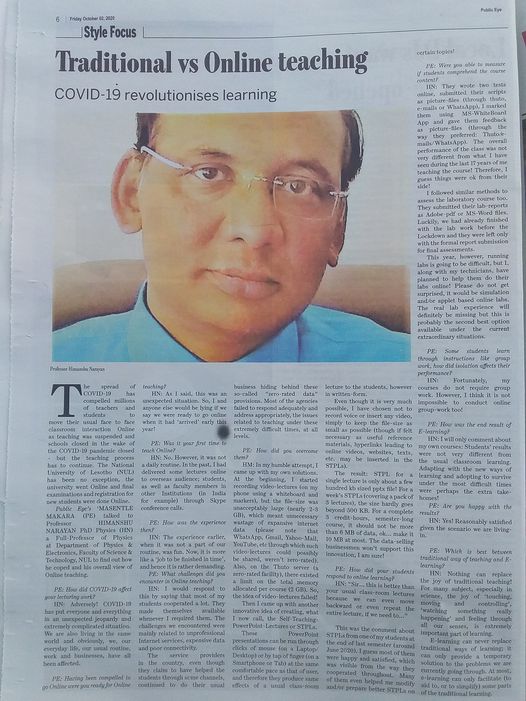‘Makuena Lesiea is leading the creation of a cooperative chain store that will sell ONLY Lesotho products! The store is being developed under the National University of Lesotho (NUL) Innovation Hub and it will be incubated by the Hub. “Have you seen it? Basotho are producing like never before,” ‘Makuena said. “However, their products are hard to see in the markets. We want to change all that.”
The store, she said, will ultimately make its presence in all districts of Lesotho, starting from Maseru.
[If you want to be part of the proposed Coop Store, join us on the following WhatsApp group: https://chat.whatsapp.com/KRMXRJNPuXD2BDJCFTb9IR]
Visit any supermarket in Lesotho and check the products on the shelves. You will be shocked to realise that, in general, just 1% of them are made in Lesotho. The other 99% comes from elsewhere! Is it because Basotho are not producing or can’t produce at all? Nope! “Having worked directly with the NUL Innovation Hub and the Tsa Mahlale TV program under the Hub, I have travelled the depth and breadth of Lesotho and I was amazed at the amount of work Basotho are doing.”
The problem?
Basotho products are not given sufficient platform to prove themselves.
“Credit where it is due, some shops are beginning to accept and sell Basotho products,” she said. “However, they are barely making a dent because Basotho products, being at their infancy, cannot receive full attention unless by a store that is designed to give them full attention.”
Such a store doesn’t exist!
She said the idea is not to compete with any of the existing stores because, “we are getting into a new territory altogether, we are addressing a different market.”
So listen to ‘Makuena as she presents some features of the store that will surely persuade you to join the bandwagon:
1. Customer and producer confidence: The store, she said, will achieve two things. First, when they see masses of Lesotho-made products in one place, Basotho customers will slowly grow confidence in them. The confidence will shoot to the roofs when the customers experience that many of the products made in Lesotho are already way ahead of foreign competitors in terms of quality.
Second, the store will give Basotho producers an assurance that their products have, at least, one store that is willing to take them, dark or blue. More production will come from such assurance.
2. Selling “everything”: The store will sell everything from fruits and vegetables to processed foodstuffs to clothing and building materials (if Thabure car will be in production by then, it will be on the shelves too). “Suppose what we want to sell is not locally made, we will never cross the border, any border, to find its equivalence. We will encourage Basotho to produce it until they do.”
3. We mean business: whereas Basotho are beginning to produce, their products are still all over the place. You bump across them in some few willing stores, in expos and trade shows, or as being sold by individual resellers. Those are good efforts, but they are not enough. In fact, many in Lesotho have come to see producing and selling as being more of an art, a hobby, a therapy or a hustling than a business, “so we are seriously moving away from such a casual approach, we mean business this time around.”
4. Ownership: So when you enter this store, you could be purchasing a product made by you in a store owned by you.
What a difference!
5. Reasonable standards: the store will only demand reasonable standards. As a struggling Masotho, try taking your products to some of the local shops and you are, at worst, turned away without reason or, at best, given a long list of standards you must meet BEFORE they can take your product. “In our case, as long as your products are reasonably of good quality, you are in. NUL Innovation Hub is already testing many Basotho products. We won’t ignore quality, but we won’t use it as a way to prevent Basotho products from growing either.”
6. A cooperative chainstore: From contributing as little as M50 per month, members will use a continuous financing model to ensure that the store doesn’t just end in Maseru but reaches the ten districts of Lesotho. Each branch will start at a medium scale in order to grow along with Basotho products. We won’t ask for investors to come from anywhere, “we will be investors ourselves.”
7. An export Launch Pad. “We are often told to export our produce. The obvious question is, if you haven’t convinced your own people to consume your own products, how can you convince people in other lands to do so? Why should they take you seriously?”
However, the store is NOT meant to be a local store forever. It will be a means by which we export our products to other countries in the future. When we export the store to Soweto, we export it along with products from Lesotho. Don’t say no because we have seen Chinese shops and Indian shops and, of course, South African shops, filled to the brim with Chinese products and Indian products and South African products in many countries.
“if they can do it,” ‘Makuena ended, “so can we.”
“Because if it is there in some of us, it is there in all of us.”


